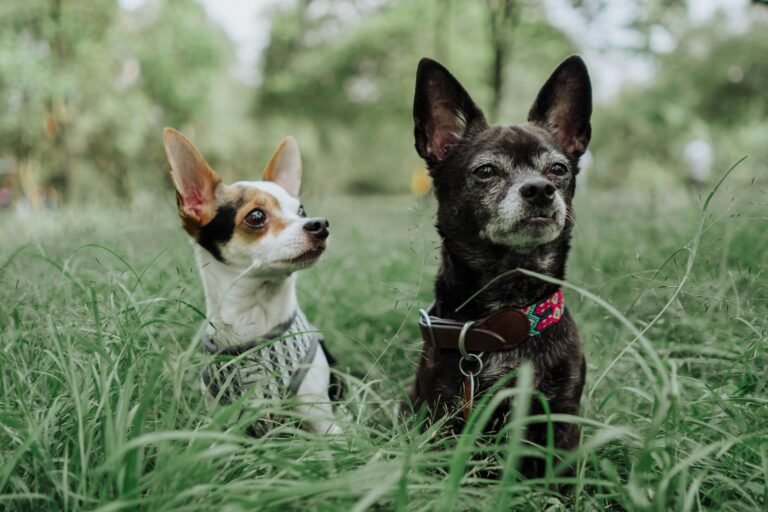How to Manage a Chihuahua Breeding Business

Running a Chihuahua breeding business can be a rewarding and profitable endeavor if managed properly. However, it requires careful planning, attention to detail, and a strong commitment to the health and well-being of your dogs. Whether you’re a new breeder or looking to improve your operations, understanding the ins and outs of managing a breeding business will help ensure long-term success. From setting up your business legally and selecting high-quality breeding stock to caring for the health of your Chihuahuas and effectively marketing your puppies, there are many facets to running a successful Chihuahua breeding business.
In this guide, we’ll explore the essential steps for managing a Chihuahua breeding business, focusing on business setup, dog care, marketing, and financial management. These tips will help you build a reputable and thriving breeding operation while maintaining the highest ethical standards in breeding practices.
1. Setting Up a Successful Breeding Business
Starting a Chihuahua breeding business requires more than just passion—it involves proper planning and legal compliance. Before breeding your first litter, you’ll need to ensure that your business is legally sound and that you have a clear plan for your breeding program. A successful business starts with selecting the right breeding stock, developing a long-term plan for improving the breed, and securing all necessary legal requirements.
1.1 Legal Requirements and Licensing
Before starting a Chihuahua breeding business, it’s essential to familiarize yourself with the legal requirements in your area. This may include obtaining specific permits, business licenses, and kennel registrations, depending on local regulations. Breeding dogs for commercial purposes often requires adherence to animal welfare standards, which means your facilities must meet health and safety requirements, including proper housing, cleanliness, and space for the dogs.
Additionally, some regions have laws that regulate the number of litters you can breed each year or require health screenings for breeding animals. It’s important to research and follow these regulations to avoid legal issues and potential fines. Depending on your location, you may also need to register with the American Kennel Club (AKC) or other recognized breeding organizations, which often have their own set of guidelines and standards for breeders to follow.
Being proactive about legal compliance not only protects your business but also builds credibility with potential buyers. A well-organized and legally compliant breeding business gives buyers confidence that they are dealing with a responsible breeder who prioritizes the health and well-being of the dogs.
1.2 Finding the Right Breeding Stock
Selecting high-quality breeding stock is one of the most critical decisions you will make as a Chihuahua breeder. The quality of your breeding stock directly affects the health, temperament, and physical traits of the puppies you produce, which ultimately determines the reputation of your breeding program. When choosing your foundation Chihuahuas, it’s essential to prioritize dogs that conform to the breed standard, have strong pedigrees, and are free of genetic health issues.
Health screenings are a must when selecting breeding dogs. Chihuahuas, like all purebred dogs, are prone to certain genetic conditions, including patellar luxation, heart problems, and eye disorders. Ensure that both the male (sire) and female (dam) have been tested and cleared of any hereditary issues before breeding them. Look for dogs that exhibit excellent conformation, temperament, and behavior, as these traits will pass on to the puppies.
Establish relationships with reputable breeders or purchase dogs from recognized breeding programs that produce high-quality Chihuahuas. This helps ensure that the dogs you select for breeding come from healthy, well-bred lines. As you develop your own breeding program, focus on improving the breed by selecting dogs that excel in both health and temperament.
1.3 Creating a Breeding Program Plan
A successful Chihuahua breeding business is built on a solid breeding program plan. This plan outlines your goals for improving the breed, including how you will select and pair breeding dogs to achieve desired traits, manage the health of your dogs, and ensure the puppies are of high quality. Your plan should also include a breeding schedule that allows for adequate rest periods between litters to ensure the health and well-being of your breeding females.
Part of your breeding plan involves understanding the genetic traits you want to enhance or eliminate in your breeding stock. For example, if you want to focus on producing Chihuahuas with excellent temperaments and sound physical health, you’ll need to carefully select dogs that meet these criteria and avoid breeding dogs with known genetic issues. Keeping detailed records of each dog’s health, behavior, and breeding history will help you track progress and make informed breeding decisions.
Your breeding program plan should also include contingency plans for managing unexpected issues, such as health problems in breeding dogs or complications during whelping. Being prepared for potential challenges ensures that your business runs smoothly and that your dogs receive the best possible care.
2. Managing the Health and Care of Your Dogs

The health and well-being of your breeding Chihuahuas are critical to the success of your business. Ensuring that your dogs are well cared for, healthy, and happy will not only result in better puppies but also establish your reputation as a responsible breeder. Proper health care involves routine veterinary visits, balanced nutrition, regular exercise, and careful monitoring of the breeding process.
2.1 Regular Veterinary Checkups
Routine veterinary checkups are essential for maintaining the health of your breeding Chihuahuas. Regular health screenings help identify and address any potential health issues before they become serious problems, ensuring that your dogs are in top condition for breeding. For Chihuahuas, common health screenings include tests for patellar luxation, heart disease, and eye disorders. Your vet can also monitor your dogs’ overall physical condition, provide vaccinations, and offer advice on preventive care.
Before breeding, both the male and female Chihuahuas should undergo thorough health evaluations to ensure they are physically fit for reproduction. Pregnant females should be closely monitored throughout their pregnancy, with regular vet visits to check on the health of both the mother and her developing puppies. After the puppies are born, veterinary checkups are equally important to ensure that the puppies are healthy and growing properly.
A good relationship with a trusted veterinarian is key to managing the health of your breeding dogs. Having a reliable vet you can turn to for advice, emergency care, and routine checkups will help you ensure that your breeding program runs smoothly and that your dogs are always in the best possible health.
2.2 Proper Nutrition and Exercise
Maintaining the health of your breeding Chihuahuas requires more than just veterinary care—it also involves providing proper nutrition and regular exercise. A well-balanced diet tailored to the needs of breeding dogs is essential for supporting their overall health and reproductive success. Feeding high-quality dog food that meets their nutritional requirements ensures that they are strong, healthy, and able to produce healthy puppies.
Pregnant and nursing females, in particular, require additional nutrients to support their bodies and their puppies. Providing food rich in protein, vitamins, and minerals helps promote healthy pregnancies and ensures that the puppies receive the necessary nutrients while nursing. Consult your vet to develop a tailored feeding plan for your breeding Chihuahuas, taking into account their age, weight, and activity level.
Exercise is another important component of maintaining your dogs’ health. While Chihuahuas are small dogs, they still need regular physical activity to stay fit and avoid obesity, which can negatively affect their ability to breed. Incorporate daily walks and playtime into your dogs’ routine to keep them active and mentally stimulated. Regular exercise also helps maintain muscle tone, which is important for both males and females during breeding.
2.3 Breeding and Whelping Support
Managing the breeding process and supporting your Chihuahuas through whelping (the process of giving birth) is a key responsibility for any breeder. When breeding, it’s important to monitor your dogs closely to ensure that the mating process goes smoothly and that both the sire and dam are healthy and comfortable. It’s essential to keep detailed records of the mating process, including dates and any observations, to track the progress of the pregnancy.
During whelping, your role as a breeder is to provide a safe, comfortable environment for the dam and to be prepared for any complications. This includes setting up a whelping box where the dam can give birth and care for her puppies in a clean, quiet space. Be ready to assist during labor if necessary, and know when to call a veterinarian for help, especially if the dam is experiencing difficulties.
Postnatal care is just as important as the whelping process. Ensure that the dam has plenty of food and water to support milk production, and monitor the puppies closely to ensure they are nursing and growing properly. Regular checkups with your vet during the postpartum period will help catch any health issues early and ensure that both the dam and her puppies are thriving.
3. Marketing and Selling Chihuahua Puppies

Once your Chihuahua breeding business is up and running and you’ve successfully produced healthy litters, the next step is effectively marketing and selling your puppies. Building a strong brand and developing a network of potential buyers are crucial for ensuring that your puppies go to loving, responsible homes. In this section, we’ll explore strategies for marketing your breeding business, building relationships with buyers, and ensuring that each puppy finds a suitable home.
3.1 Building a Brand and Online Presence
In today’s digital age, having a strong online presence is essential for any successful business, and Chihuahua breeding is no exception. To market your puppies effectively, you need to establish a professional website and social media profiles that showcase your breeding program, your dogs, and your available puppies. A well-designed website should include detailed information about your breeding practices, the health and care of your dogs, and the availability of upcoming litters.
Your website should also feature high-quality images of your Chihuahuas and puppies, testimonials from previous buyers, and contact information for inquiries. In addition to a website, social media platforms like Instagram, Facebook, and YouTube are great tools for connecting with potential buyers and sharing updates about your breeding program. Regularly posting photos and videos of your dogs and puppies helps build trust and engagement with your audience.
Branding is also important for establishing a reputation in the Chihuahua breeding community. Create a memorable logo and consistent messaging that highlights your dedication to ethical breeding practices and the quality of your puppies. A strong brand will help distinguish your business from others and attract buyers who value responsible breeding.
3.2 Networking with Buyers and Breeders
Building a network of potential buyers and fellow breeders is key to expanding your reach and growing your Chihuahua breeding business. Attending dog shows, breed-specific events, and joining Chihuahua breed clubs are excellent ways to connect with other breeders and potential buyers. These events give you the opportunity to showcase your dogs, learn from experienced breeders, and establish relationships with people interested in buying or collaborating.
Joining online communities and forums dedicated to Chihuahua breeding can also help you connect with like-minded breeders and build relationships with prospective buyers. Many breeders also develop partnerships with veterinarians, trainers, and groomers who can recommend their puppies to clients.
Word-of-mouth referrals from satisfied buyers are incredibly valuable for growing your business. Providing excellent customer service, maintaining clear communication, and offering post-purchase support to your buyers will encourage them to recommend your business to others. Positive reviews and referrals can help establish your credibility as a responsible breeder.
3.3 Screening Buyers and Placing Puppies in Good Homes
One of the most important responsibilities of a Chihuahua breeder is ensuring that your puppies are placed in loving, responsible homes. This requires screening potential buyers carefully to make sure they are capable of providing a safe and caring environment for the puppy. Start by asking buyers about their living situation, experience with dogs, and understanding of Chihuahua care requirements.
It’s also important to discuss the buyer’s lifestyle and expectations for owning a Chihuahua, as this breed has specific needs that may not suit everyone. For example, Chihuahuas are small and delicate dogs that require careful handling, regular attention, and may not do well in households with young children or large, active pets. By having these conversations, you can ensure that each puppy is matched with an appropriate home.
In addition to screening buyers, you should provide information about the puppy’s care, including feeding, grooming, and training tips. Offering a follow-up support plan or a return policy, should the buyer’s circumstances change, demonstrates your commitment to the puppy’s well-being and can help prevent abandonment or rehoming.
4. Financial Management and Scaling the Business

Managing the financial aspects of a Chihuahua breeding business is crucial for long-term success. From setting fair prices for your puppies to managing operational costs, keeping track of your finances ensures that your business remains profitable. As your business grows, you may also consider expanding your operations or offering additional services, which will require careful financial planning.
4.1 Setting Puppy Pricing and Contracts
Determining the right price for your Chihuahua puppies depends on several factors, including the quality of the breeding stock, pedigree, coat type, and market demand. Puppies from champion bloodlines or with exceptional health and temperament may command higher prices than pet-quality puppies. It’s essential to research the market in your area and adjust your pricing accordingly, while also taking into account the expenses involved in breeding and raising the puppies.
In addition to setting prices, you should provide buyers with a detailed contract that outlines the terms of the sale. This contract should include health guarantees, return policies, and any breeding restrictions if the puppy is being sold as a pet rather than a breeding prospect. A clear and comprehensive contract protects both you and the buyer, ensuring that everyone understands their responsibilities.
4.2 Managing Costs and Profit Margins
Running a Chihuahua breeding business comes with various costs, including veterinary care, food, grooming, and facility maintenance. To keep your business profitable, it’s important to track these expenses carefully and calculate your profit margins. This will help you determine how much you need to charge for your puppies to cover costs and still make a reasonable profit.
Budgeting for emergencies and unexpected expenses is also crucial. Breeding dogs may face health complications, emergency C-sections, or other medical issues that can be costly. Setting aside funds for these situations ensures that your business can handle unexpected challenges without financial strain.
Regularly reviewing your finances and adjusting your pricing or expenses as needed will help you maintain a healthy profit margin while ensuring that your dogs receive the best possible care.
4.3 Scaling and Expanding Your Business
As your breeding business becomes more established, you may want to consider expanding your operations. This could involve investing in additional breeding stock, increasing the size of your facilities, or offering related services such as dog grooming, training, or boarding. Expanding your business requires careful planning and financial investment, but it can help increase your revenue and grow your brand.
Before scaling your business, assess whether you have the resources and capacity to care for additional dogs and manage a larger operation. Expansion can also mean hiring staff or partnering with other breeders to share responsibilities. By planning strategically, you can scale your business in a way that maintains quality and ensures continued success.
Conclusion
Managing a Chihuahua breeding business requires a combination of passion, planning, and professionalism. From setting up a legally compliant business and selecting high-quality breeding stock to marketing your puppies and managing your finances, every aspect of the business must be carefully thought out. The health and well-being of your dogs should always be the top priority, and ethical breeding practices will help you build a strong reputation.
As your business grows, staying organized, providing excellent customer service, and constantly improving your breeding program will set you apart in the competitive world of Chihuahua breeding. With the right approach, you can enjoy both the financial rewards and the satisfaction of raising healthy, happy Chihuahuas that bring joy to their new families.






